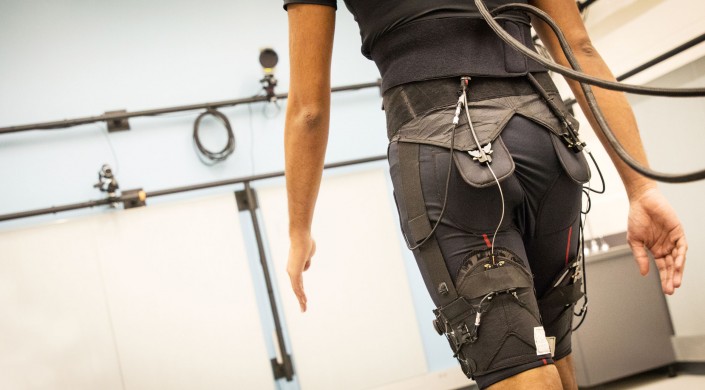Harvard University February 28, 2018
Researchers at Harvard University used Bayesian optimization to identify the peak and offset timing of hip extension assistance that minimizes the energy expenditure of walking with a textile-based wearable device. Optimal peak and offset timing represents an improvement of more than 60% on metabolic reduction compared with state-of-the-art devices that only assist hip extension. The results provide evidence for participant-specific metabolic distributions with respect to peak and offset timing and metabolic landscapes, lending support to the hypothesis that individualized control strategies can offer substantial benefits over fixed control strategies… read more. TECHNICAL ARTICLE

Harvard researchers have developed an efficient machine learning algorithm significantly improving the performance of the device. (Image courtesy of Ye Ding/Harvard SEAS)